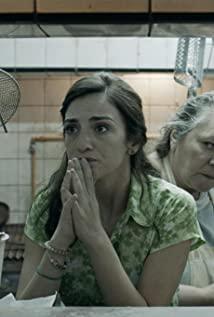Savage Tales (2014) is a very highly rated film. Although the film shows six "savage stories"—that is, stories that are unlikely to happen in reality, these stories are never "savage" in people's hearts. I have not let these kinds of things happen. Even if they happen, I won't let them spread, but I can't guarantee that on that day, emotions outweigh reason. What will you do? The meaning of the film's warning seems to be here.
for the first story. We may all think that this Captain Pasternak is too extreme. This kind of evaluation is okay, it shows that we are still normal people, but think about it in another way, if we are that captain, thinking of those who have hurt you, we Have you ever had such a desire in your heart: to destroy them, it is best to let them disappear from this world. The second is a story about enemies meeting with special jealousy. If we were the waitress, what would happen if we encountered the enemy who killed our relatives, of course, we wanted to poison him directly, but we would have the same worry as the waitress, and generally would not do it directly, but we still hope in our hearts that there is a The knights can act righteously and kill that bastard for you; if we are that old woman chef, extremely world-weary, and hate government officials, once we find out that they are doing good to the weak, do we also want to pick up the butcher's knife for the sky Walk the road once? The third story is really "a thought of heaven, a thought of hell". Simple provocation, in general, will not cause too much conflict, but it will be different when driving. If we are the poor man or the rich gentleman, are we very likely to do that and fight to the death, especially in the face of humiliation and humiliation, the human sexual desire expressed in this story is most likely to happen in reality. The fourth story is about the contradiction between man and society. When you find out that the society is unfair to you, although you have been provided with a channel to appeal, but you feel that it is useless, we really thought about it: do you really want to blow it up? It's just that the character in the film happened to be a blasting engineer, and he really blew up the unreasonable towing service company that had a relationship with the government. The fifth is the story of a rich man who wanted to use money to help his son get rid of legal sanctions, and colluded with a lawyer to use his housekeeper to cover the bag. Due to human greed, the revenge impulse of the victim's family failed to achieve the purpose of blood debt. Putting ourselves in our shoes, we seem to understand this revenge impulse, because we too hated it. The last story mainly reflects the ethics of husband and wife. When people find out that their other half is unfaithful, they will have the same impulse for revenge as the heroine in the film.
It can be seen that the "savage story" is not actually absurd, it is the truest reflection of our heart, but it is cruelly expressed in the form of a movie; it is precisely because the story has a strong sense of substitution that it can arouse viewers. The personal emotional experience of the filmmaker, although not as touching as other films, definitely shocks you, and even terrifies you—the impulse for revenge can have such consequences. (by: Slate Planting Flowers/2015-03-09)
View more about Wild Tales reviews









